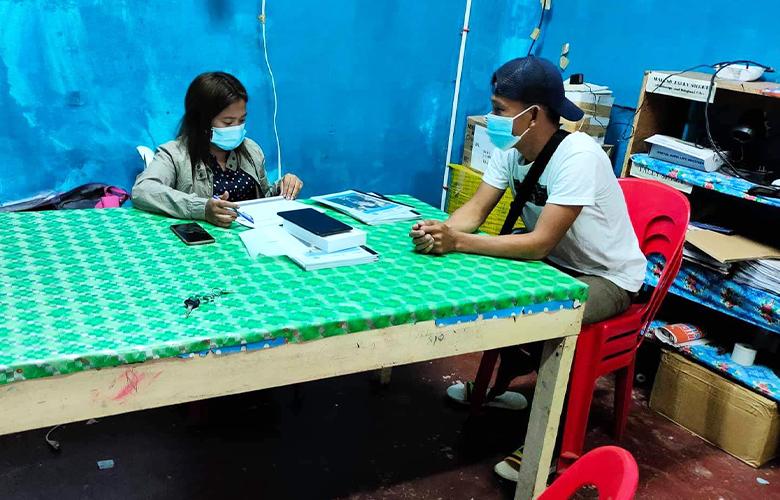
Since 2009, EDC has been delivering Work Ready Now (WRN) skills training to at-risk youth in developing countries—in-person, hands-on training, enabling youth to successfully earn a living. We’ve considered for many years what it would look like to put WRN online, but we never made the plunge. How do you preserve the sense of community, collaboration, and confidence building so critical when developing new behaviors? How do you handle issues regarding access to technology and connectivity? How do you prevent the high drop-out rates common in online learning?
Then the COVID-19 pandemic hit, and we were forced to figure it out.
In the madness of spring 2020, we analyzed our content and the local situations. We explored options for delivering engaging, learner-centered life skills trainings that youth could do at home. We thought about how you build trust in a classroom and how we could translate that trust to a virtual space.
We took a close look at how to adapt each activity. For example, during a face-to-face class on preparing youth for job interviews, students witness role plays of bad and good interviews. They learn about the interview process, then practice mock interviews and provide peer feedback. In self-paced e-learning, students would miss the richness of the practice interviews and feedback, which is how such new behaviors are developed. For our virtual classroom, our Lebanese instructors shared videos of themselves demonstrating a terrible interview and a good interview, which were followed by rich conversations and then mock interviews in breakout groups.
We also took time to analyze the context. Can teachers still lead weekly sessions? What is technology and Internet access like? We redesigned WRN to take on different forms across the technology spectrum:
- Philippines: Youth use paper packets for self-directed learning. Teachers go to students’ communities to check-in, drop off new handbooks, and collect completed work.
- Rwanda: Interactive audio instruction keeps youth engaged with work readiness concepts.
- Lebanon: University instructors use virtual classrooms, with e-learning sprinkled throughout.
- Senegal: The government is using WRN as a proof of concept for a hybrid approach with their new e-learning system.
We know these strategies will evolve as communities start opening up. Virtual learning in Senegal will likely morph into hybrid learning. Paper-based instruction in the Philippines will become blended learning. Data will start emerging that will tell us what worked and what didn’t.
2020 gave us a major lesson in flexibility, and we’ll keep adjusting as we learn more and the situation evolves. We just have to be open to learning ourselves.
Please share your tips for “pivoting to distance learning.”
| Nancy Chervin is an international youth and workforce technical advisor at EDC. She currently works on programs in the Philippines and Lebanon. |

Comments
Add new comment